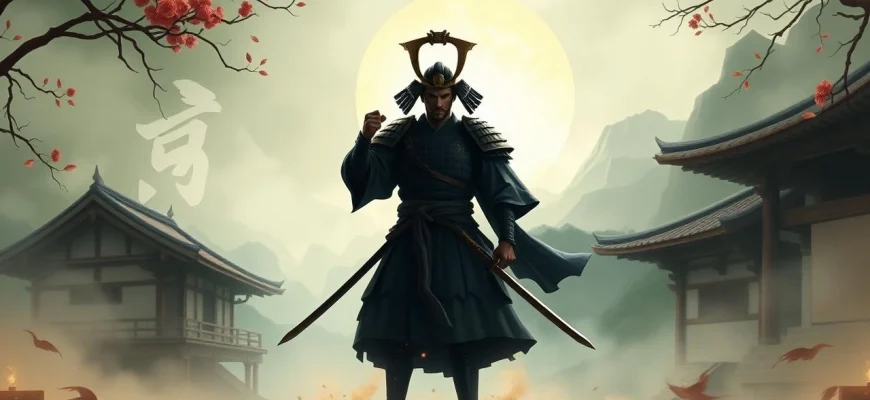If you loved 'The Last Samurai' (2003) for its breathtaking action, deep cultural exploration, and emotional storytelling, you're in for a treat. This article highlights 10 movies and shows that capture the same spirit of honor, historical drama, and epic battles. Whether you're drawn to samurai lore, warrior codes, or tales of redemption, these recommendations will satisfy your craving for more cinematic experiences like 'The Last Samurai.'

Seven Samurai (1954)
Description: Seven Samurai is similar to The Last Samurai in its exploration of honor, duty, and the clash between tradition and modernity. Both films feature a group of warriors defending a village against overwhelming odds, highlighting themes of sacrifice and loyalty. The visual storytelling and epic battle sequences in Seven Samurai also resonate with the grandeur of The Last Samurai.
Fact: Seven Samurai is considered one of the greatest films ever made and has influenced countless movies. The film was originally released in two parts in Japan due to its length. Director Akira Kurosawa meticulously researched historical details to ensure authenticity.
 Watch Now
Watch Now 
Yojimbo (1961)
Description: Yojimbo and The Last Samurai both feature lone warriors navigating morally ambiguous worlds. The protagonists in both films are skilled fighters who must choose between self-interest and protecting the innocent. The atmospheric cinematography and tension-filled narratives are common to both.
Fact: Yojimbo inspired the spaghetti western A Fistful of Dollars. Toshiro Mifune's portrayal of the ronin is iconic. Director Akira Kurosawa used a telephoto lens to create the film's unique visual style.
 Watch Now
Watch Now 
Harakiri (1962)
Description: Harakiri, like The Last Samurai, examines the rigid codes of honor and the personal costs of adhering to them. Both films critique the romanticized view of the samurai lifestyle, presenting a more nuanced and often tragic perspective. The emotional depth and moral complexity in Harakiri are akin to those in The Last Samurai.
Fact: Harakiri won the Special Jury Prize at the Cannes Film Festival. The film is based on a novel by Yasuhiko Takiguchi. Director Masaki Kobayashi was known for his anti-authoritarian themes.
 Watch Now
Watch Now 
The Tale of Zatoichi (1962)
Description: The Tale of Zatoichi shares The Last Samurai's focus on a wandering warrior with a strong moral compass. Both protagonists are masters of their craft who seek redemption and purpose. The films blend action with deep character development, set against the backdrop of a changing society.
Fact: Zatoichi is a blind masseur and swordsman, a unique character in samurai cinema. The film spawned a long-running series of sequels and TV shows. Actor Shintaro Katsu performed many of his own stunts.
 Watch Now
Watch Now 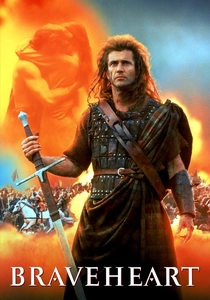
Braveheart (1995)
Description: Braveheart, like The Last Samurai, is a historical epic about a warrior leading a rebellion against an oppressive regime. Both films emphasize themes of freedom, sacrifice, and national identity. The sweeping battle scenes and emotional storytelling are hallmarks of both movies.
Fact: Braveheart won five Academy Awards, including Best Picture and Best Director. Mel Gibson learned to speak Gaelic for his role. The film was shot in Scotland and Ireland.
 Watch Now
Watch Now 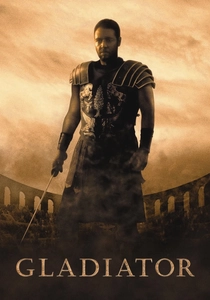
Gladiator (2000)
Description: Gladiator and The Last Samurai both tell the story of a warrior displaced from his homeland who finds redemption in a foreign culture. The films share themes of honor, revenge, and the struggle against corruption. The epic scale and emotional resonance of Gladiator mirror those of The Last Samurai.
Fact: Gladiator won five Academy Awards, including Best Picture. Russell Crowe performed many of his own stunts. The film's battle scenes were inspired by historical accounts of Roman warfare.
 Watch Now
Watch Now 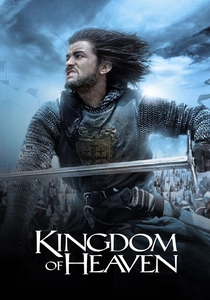
Kingdom of Heaven (2005)
Description: Kingdom of Heaven shares The Last Samurai's exploration of a warrior finding purpose in a foreign land. Both films deal with themes of faith, honor, and the clash of cultures. The grand scale and historical authenticity of Kingdom of Heaven are comparable to those of The Last Samurai.
Fact: Kingdom of Heaven was heavily edited for its theatrical release; a director's cut was later released. The film's production design meticulously recreated 12th-century Jerusalem. Director Ridley Scott aimed to present a balanced view of the Crusades.
 Watch Now
Watch Now 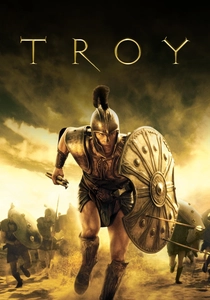
Troy (2004)
Description: Troy and The Last Samurai are both epic tales of warriors grappling with their destinies. The films feature large-scale battles, personal heroism, and tragic love stories. The exploration of legendary figures and their moral dilemmas is a common thread.
Fact: Troy is loosely based on Homer's Iliad. Brad Pitt trained for six months to prepare for his role as Achilles. The film's massive sets included a full-scale replica of the city of Troy.
 Watch Now
Watch Now 
13 Assassins (2010)
Description: 13 Assassins shares The Last Samurai's focus on a small group of warriors standing against a corrupt and oppressive force. Both films delve into the samurai code of honor and the moral dilemmas faced by their protagonists. The intense, well-choreographed battle scenes in 13 Assassins mirror the action in The Last Samurai.
Fact: 13 Assassins is a remake of a 1963 film of the same name. The final battle sequence lasts for nearly 45 minutes. Director Takashi Miike is known for his prolific output, having directed over 100 films.
 Watch Now
Watch Now 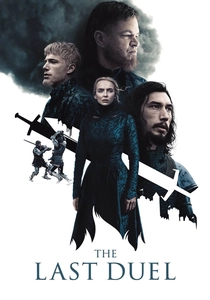
The Last Duel (2021)
Description: The Last Duel, like The Last Samurai, is a historical epic that explores themes of honor, revenge, and justice. Both films depict intense personal conflicts set against larger societal changes. The meticulous attention to historical detail and the emotional weight of the narratives are similar.
Fact: The Last Duel is based on a true story from 14th-century France. The screenplay was co-written by Ben Affleck and Matt Damon. Director Ridley Scott is known for his visually stunning historical films.
 Watch Now
Watch Now 
